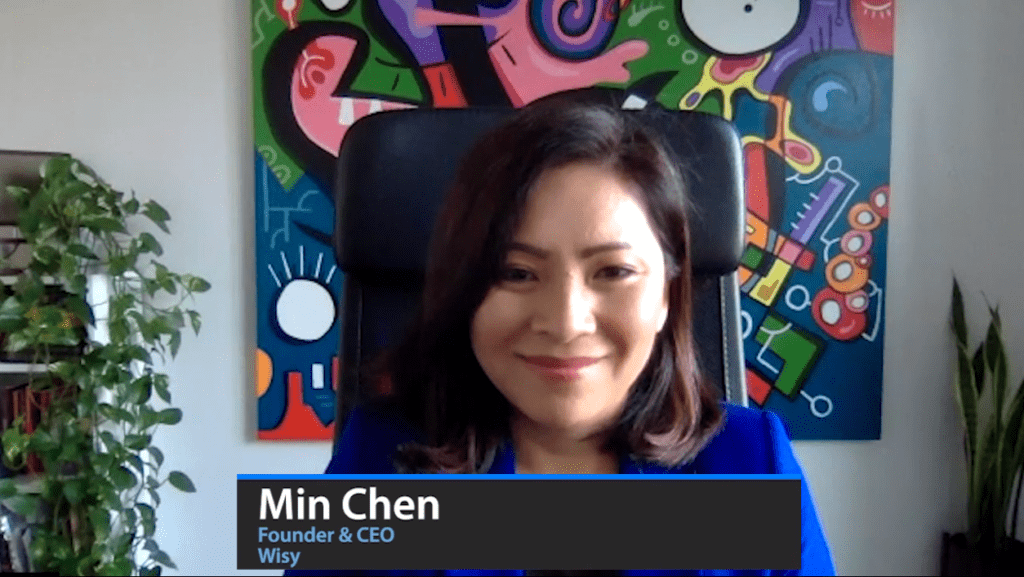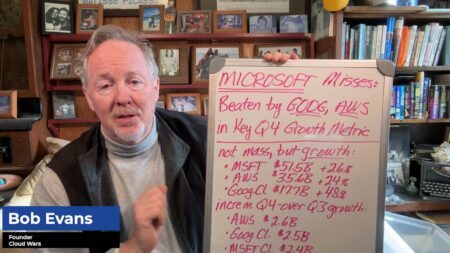
The Chilean beverage giant CCU has completed a pilot test of AI-powered retail execution software and, based on its success in that six-month project, plans to expand usage of the software to support more elements of its business.
The software that CCU tested, and is looking to deploy in production, is developed by Wisy, which was named Cloud Wars Startup of the Year in 2022 by Acceleration Economy practitioner analysts who judged Wisy and other startups.
CCU utilized the Wisy retail execution software platform to monitor the presentation and placement of 250 SKUs at partner sites in a test that ran from November 2022 through May. One of the core goals of the test was to see whether the software could more consistently and accurately analyze the company’s products, their placement, and other details when compared to manual monitoring conducted by people.

“It helped us a lot to have this consistent way of measuring our reach and our clients and using that data to have some estimation of our market share in our traditional channel,” says Jaime Binder Ross, innovation director at CCU, based in Santiago, Chile.
How Wisy Software Works
The most common way of managing the display of products and executing promotions on retail store shelves today is to have employees visually inspect them and try to present them in the most appealing fashion.
Wisy replaces the human, visual analysis with a camera (using a common cellphone or tablet) that delivers real-time analysis, recommendations, and optimization. Pictures are processed on the mobile device because most stores have poor connectivity and users need instant feedback. Photos and analytics are also made available via the web but the processing occurs instantly on the user’s device.
Here’s how Wisy works in a typical scenario: A company representative (for CCU in this case) snaps photos of its products on a shelf or in a refrigerator. The Wisy AI platform provides data analysis and insights that answer questions including:
- Are product layouts and prices optimized to drive revenue, profitability, and market share?
- In those cases where a shelf or refrigerator is “owned” by one company, is there any contamination from other products being displayed?
- Is a product in danger of going out of stock in the near term and, if so, can it be replenished quickly?
How CCU Uses Wisy
CCU selected Wisy to test as an outcome of its “Innovation Challenge.” Its goal from the outset, according to Binder Ross, was to discover ways to optimize trade marketing. That’s an important consideration in light of the number of partners that sell its products: 40,000.
For the test, it elected to use Wisy in its “traditional” channel, namely small supermarkets as well as liquor stores. It had 18 “executors” or employees using the software across 250 SKUs within 800 points of sale.
The goal was to track three critical factors to trade marketing success: layout, price, and contamination. The software was tested in locations where CCU has its own dedicated refrigerators, meaning no third-party or non-beverage products should be housed there. Any cases where that did happen are deemed contamination.
When it comes to price and layout, the key factors being measured are whether the layout will enable optimal revenue and profits, and the pricing checks are intended to ensure the assigned prices are correct.
Use of Wisy “improved this plan of execution at the points of sale,” Binder Ross says, though he wasn’t able to cite specific figures. “With all this information, we can improve how we go to the points of sale and optimize a given fridge or cooler.”
He added, “With the Wisy solution, it’s easier for us to take pictures and, with the AI, understand where we are with these different factors.”
Binder Ross says the Wisy AI algorithm, after training, was able to correctly identify CCU inventory at a rate of 90% accuracy. That’s a critical consideration in ensuring its analysis and recommendations are targeted correctly.
Based on CCU’s trial, Binder Ross and his team are looking to secure approval to move the Wisy software into production. When that happens, they envision expanding its use in multiple ways:
- Adding more tracked data points so the software becomes more valuable and supports additional performance improvements at the point of sale
- Extend it to all salespeople and all clients
- Supporting a broader range of product categories — up to 180,000 SKUs at all 40,000 points of sale — and moving into additional regions where the company operates
Binder Ross said Wisy has been a strong partner in the testing process. “It was really pleasant to work with them. We have a problem and they have a solution at the ready. It was a really agile process.”

“CCU has been a great innovation partner. Through this pilot, we have learned about their business and what makes them so successful,” says Min Chen, CEO and co-founder of Wisy. “We appreciate the vision of their leaders and the commitment of their team to reach new frontiers by helping define new technologies. We look forward to continue partnering with CCU to add efficiency and intelligence in both traditional and modern channels with AI.”









